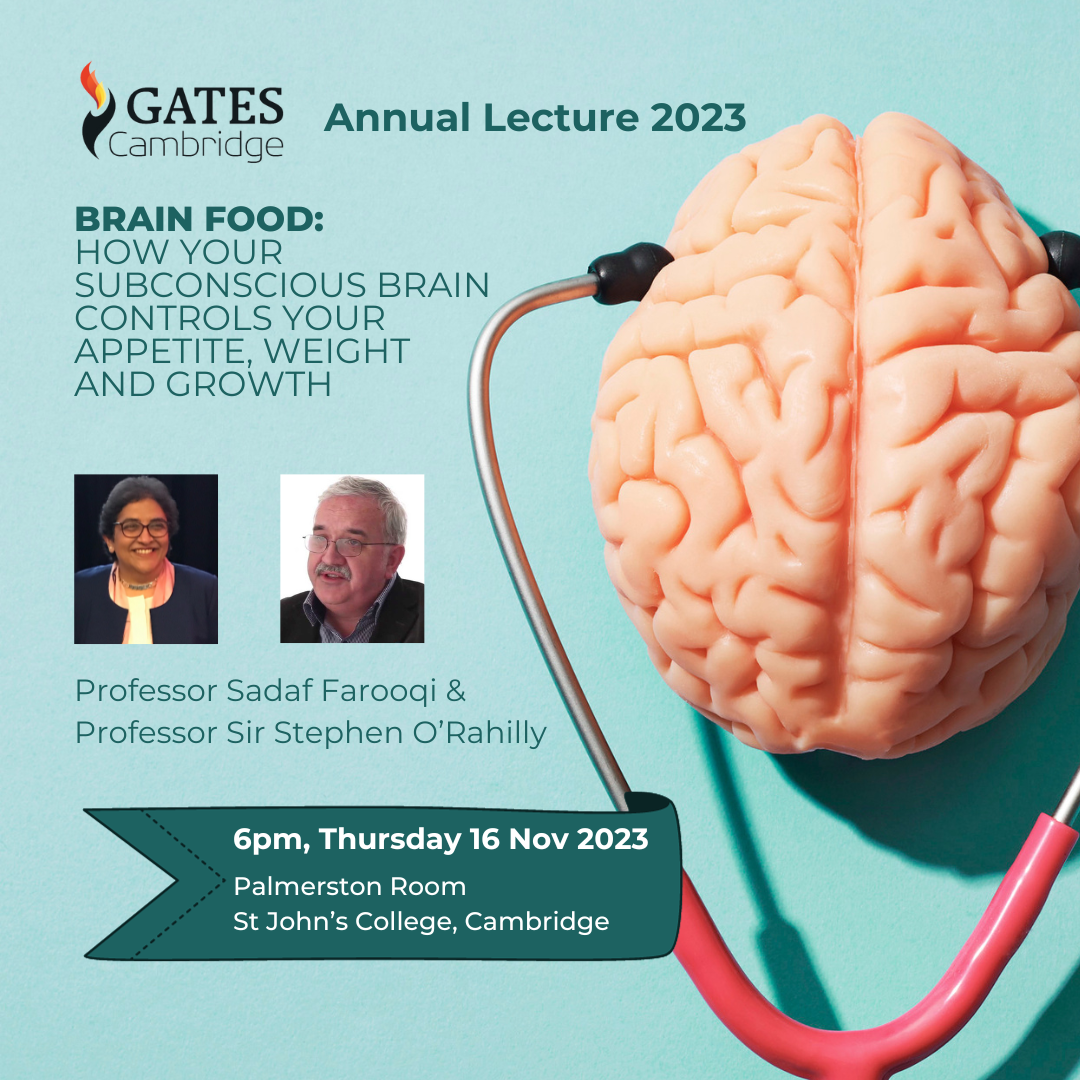
Professor Sir Stephen O’Rahilly and Professor Sadaf Farooqi will give this year's Gates Cambridge Annual Lecture on 16th November.
Two world-leading academics in understanding the genetic aspects of obesity will give this year’s Gates Cambridge Annual Lecture next month.
In Brain Food: How your subconscious brain controls your appetite, weight and growth, Professor Sir Stephen O’Rahilly and Professor Sadaf Farooqi will explain how the brain plays a crucial role in controlling our eating habits and body weight. The Annual Lecture, which is open to the public, will take place in Cambridge on 16th November.
The two professors will discuss how genes and the pathways they control have a significant impact on whether a person gains weight or not, especially in an environment where high-calorie and tasty foods are easily available and physical inactivity is common.
They will focus in particular on the leptin-melanocortin pathway, which is a set of processes that regulate body weight in humans. By studying this pathway, researchers have gained insights into how our body weight is managed, how our energy levels are linked to reproduction and growth and how problems in these brain mechanisms can lead to obesity.
They will also touch upon how this research has influenced society’s understanding of obesity and how it has led to the development of new treatments for severe obesity. With over one billion overweight or obese people worldwide, understanding the brain’s role in this process is essential for finding effective solutions to tackle this global health issue.
Professor Sir Stephen O’Rahilly is an endocrinologist who has transformed our understanding of the control of human energy balance and metabolism and how these can be disturbed to cause severe obesity and/or subtypes of diabetes. Stephen showed that mutations in single genes can cause a catastrophic loss of control of appetite and feeding behaviour, leading to severe obesity. Some of these inherited disorders can now be treated very effectively.
Stephen has built up and leads one of the world’s largest institutes for metabolic research at the University of Cambridge. His findings have been recognised internationally with many awards and prizes, and in 2013 he was knighted for services to medical research.
Professor Sadaf Farooqi is a Clinician Scientist distinguished for her discoveries of the fundamental mechanisms that control human weight regulation and their disruption in obesity. She found that the hormone leptin and its target the melanocortin 4 receptor (MC4R) regulate the drive to eat and the preference for rewarding and high fat food, revealing the biological basis of innate behaviours previously thought to be under voluntary control.
By precisely connecting molecular mechanisms to clinical phenotypes, her research explained how changes in weight affect blood pressure by altering leptin-melanocortin signalling, thereby explaining the association between obesity and hypertension. Her identification and characterisation of multiple obesity syndromes has led to genetic testing being adopted worldwide, transforming the lives of families suspected of causing severe obesity in children through neglect. Her research has directly enabled life-saving treatment for some people with severe obesity, therapies that are now licensed and widely available. Her research into MC4R mutations that protect against obesity and into the genetic basis of thinness has opened up possibilities for the design of new weight loss treatments.
* The lecture takes place in the Palmerston Room of St John’s College, Cambridge, from 6-7pm on 16th November and is followed by a drinks reception. To book a ticket, click here.












